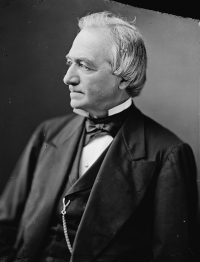
You don’t have to increase the size of the Supreme Court. Congress can simply create an “emeritus” class of Supreme Court justices.
Any justice age 70 or over becomes “emeritus.” They no longer sit in the chamber during arguments. They no longer must live in Washington. They can advise during arguments, they can file briefs on cases, and they can act as District Court judges when needed. Richard Posner did this in the case of Apple vs. Motorola, telling both sides they had lost. Emeritus judges can also work on their legacies, something they can’t do now. They can take gigs at law schools, or at law firms.
Right now, 3 justices are 70 and over – Stephen Breyer, Clarence Thomas, and Samuel Alito. Under this Judiciary Act of 2021 they would automatically go to emeritus status, with all the perks and opportunities that provides. Younger justices may also choose to retire early. I suspect a “former Supreme Court justice” can make a pile of coin.
Then you appoint replacements. Get two young progressives in for Thomas and Alito to balance the court. Maybe toss Republicans a bone and name Merrick Garland to the third seat.
This assures a steady flow of judicial appointments to every President. It means the court can be renewed continuously, as it should be. The idea of sitting for decades to scratch an ideological itch is ridiculous. A judge is not supposed to care who wins.
The authority of the President and the Congress in this matter is unquestioned. The first Supreme Court, under John Jay, had just 6 justices. Those jurists also had to “ride circuit,” hearing appeals. That’s why our regional appeals courts are called “circuit” courts. The current count of 9 came about in 1869, after Republicans had cut the number to 7, to keep Andrew Johnson from appointing any. (That law also established the circuit courts.)
This isn’t “court packing.” If anything, it’s court unpacking. If we get a solid Senate majority, I’m guessing some Republicans will support it. Then we go about increasing the number of District and Circuit court judgeships, to reduce the present backlog of cases. That’s how you balance those courts ideologically.
This is a quick, even fair way of making a one-time reform to the courts and reducing the ideological temperature. You’re appointed for life but go on emeritus status at 70, or whenever you feel ready. You remain useful in that position for life, able to discuss and dispose on legal issues as they come up.









